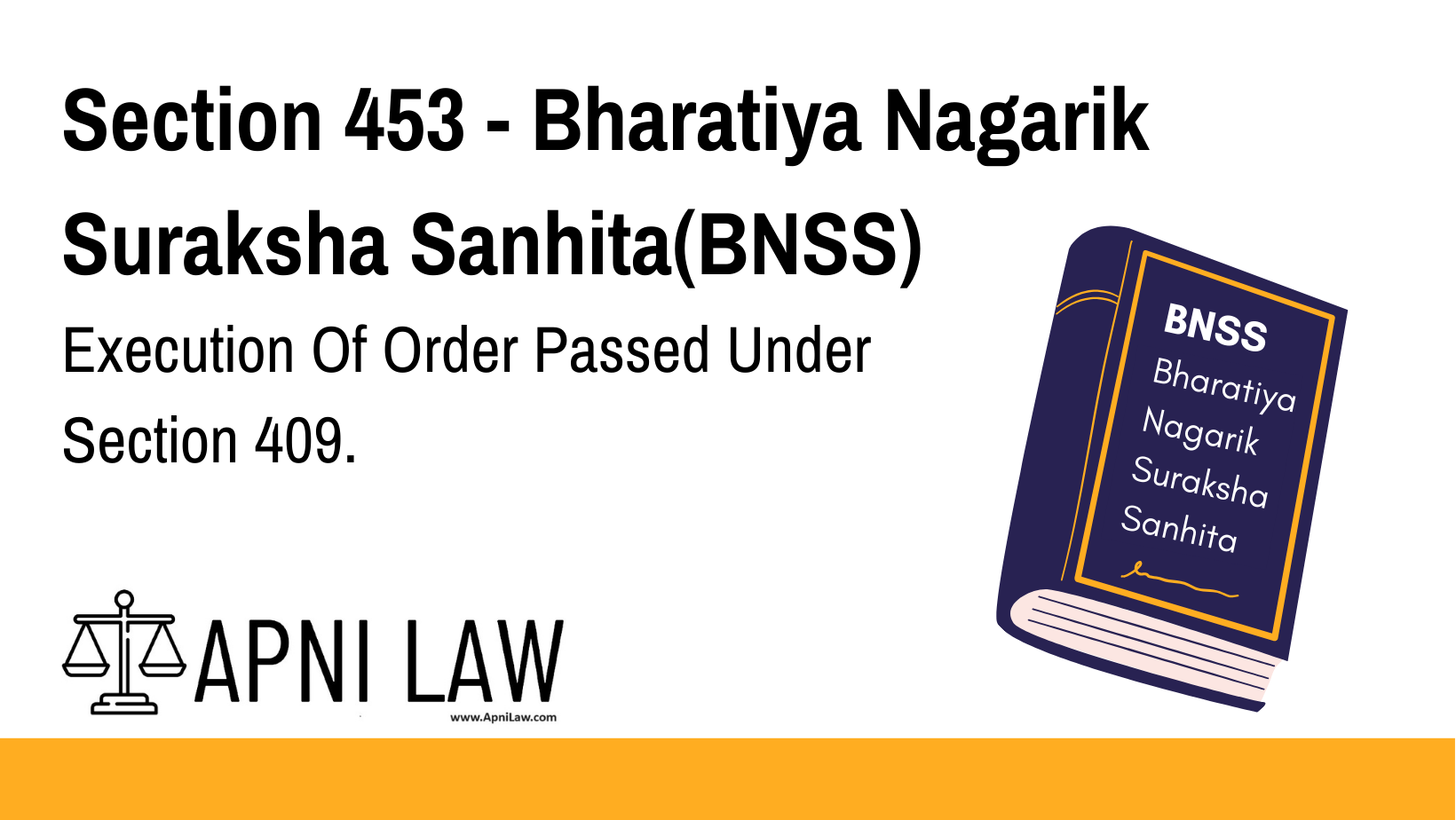Code: Section 453 BNSS
When in a case submitted to the High Court for the confirmation of a sentence of death, the Court of Session receives the order of confirmation or other order of the High Court thereon, it shall cause such order to be carried into effect by issuing a warrant or taking such other steps as may be necessary.
Explanation of Section 453 BNSS
Section 453 of the Bharatiya Nagarik Suraksha Sanhita (BNSS), 2023, deals with the execution of death sentences once confirmed by the High Court. It outlines the duty of the Court of Session to implement the High Court’s decision.
Key Provisions of Section 453 BNSS:
- Confirmation of Death Sentence:
- When a death sentence is submitted for confirmation under Section 409 BNSS, the High Court reviews it.
- If confirmed, the High Court sends an order to the Court of Session for execution.
- Role of the Court of Session:
- Upon receiving the confirmation, the Court of Session must carry out the order.
- This includes issuing a warrant of execution or taking any necessary legal steps.
- Mandatory Compliance:
- The Court of Session has no discretion in executing the High Court’s order—it must enforce it as directed.
Illustration
Example 1: Execution of a Death Sentence
A person is sentenced to death for a heinous crime under Section 103 BNSS.
- The trial court refers the case to the High Court for confirmation as per Section 409 BNSS.
- The High Court confirms the death penalty.
- The Court of Session then issues a warrant of execution and ensures that the sentence is carried out.
Example 2: High Court Modifies the Sentence
- If the High Court modifies the sentence to life imprisonment, the Court of Session must ensure the revised sentence is enforced instead of the death penalty.
Common Questions & Answers on Section 453 BNSS
1. Why is High Court confirmation required before executing a death sentence?
Since a death penalty is the harshest punishment, it undergoes an additional level of judicial scrutiny to ensure fairness and justice.
2. What happens if the High Court does not confirm the death sentence?
If the High Court modifies or overturns the death sentence, the Court of Session must follow the revised order and not proceed with the execution.
3. Can the Court of Session alter the High Court’s order?
No. The Court of Session must follow the exact instructions of the High Court without any modifications.
4. What is the procedure for executing a death sentence after confirmation?
- The Court of Session issues a warrant of execution.
- The execution takes place as per the legal provisions under Section 393 BNSS.
- The procedure aligns with the jail manual and other execution laws.
Conclusion
Section 453 BNSS ensures that a death sentence is executed only after High Court confirmation and that the Court of Session follows due process. It upholds judicial oversight, preventing wrongful executions while ensuring justice.
For more legal insights, visit ApniLaw. 🚀








